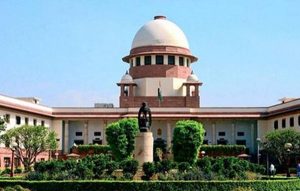 Facts of the Case: In this case, the petitioner was subjected to certain proceedings by both Central GST officers and Delhi GST officers, leading to an overlap of departmental actions. They contended that initiation of proceedings by one authority barred the other from initiating parallel proceedings under Section 6(2)(b) of the CGST/SGST Act.
Facts of the Case: In this case, the petitioner was subjected to certain proceedings by both Central GST officers and Delhi GST officers, leading to an overlap of departmental actions. They contended that initiation of proceedings by one authority barred the other from initiating parallel proceedings under Section 6(2)(b) of the CGST/SGST Act.
The primary dispute revolved around whether summons, searches, and seizures constituted “initiation of proceedings” and whether the overlapping actions were on the “same subject matter.”
The petitioner argued before the Delhi High Court that since one wing had already initiated proceedings, further proceedings by another authority were barred under Section 6(2)(b).
The Delhi High Court dismissed the writ petition, upholding the summons. The High Court held that the expression “any proceeding” in Section 6(2)(b) must be understood in the context of assessment proceedings, particularly those under Sections 73 and 74, and does not extend to investigation or summons.
The Court held that Search and summons are only precursors to formal proceedings, intended for collection of information, and do not constitute assessment. The purpose of Section 6(2)(b) is to avoid duplication in assessment/adjudication, not to bar investigative measures by different wings of the department. The reliance placed by the petitioner on Vivek Narsaria v. State of Jharkhand (2024) was distinguished. Unlike in that case, there was no situation of dual proceedings by State and Central authorities; the search here followed the show cause proceedings and could not be equated with a parallel assessment
Issue: Whether issuance of summons, conduct of search or seizure, or other inquiry measures constitute “initiation of proceedings” within the meaning of Section 6(2)(b) of the CGST Act, and whether the bar applies where proceedings are initiated by one authority on a “same subject matter.”
Held that: The Supreme Court dismissed the petition and clarified the law on parallel proceedings under GST:
- Definition of “Proceedings” – “Initiation of any proceedings” refers strictly to the formal adjudicatory process, triggered by the issuance of an SCN and not investigative actions like search or summons. The Court emphasized that “Summons, search or seizure do not constitute ‘proceedings’ within the meaning of Section 6(2)(b)”.
- Scope of “Subject Matter” – The Court interpreted “subject matter” to mean the specific tax liability, deficiency, or obligation arising from a particular contravention, as spelled out in an SCN. If two proceedings involve substantially overlapping liability, the bar under Section 6(2)(b) is triggered; if they concern distinct contraventions, the bar does not apply.
- Two-Fold Test for Overlap – To attract the bar under Section 6(2)(b), there must be an overlap both in facts and the tax liability/offence alleged.
The Court issued coordination guidelines requiring disclosure by assessees and cooperation between authorities, ensuring that the first authority to issue an SCN proceeds with adjudication. On receiving a summons or SCN, the taxpayer must comply and respond.
- If a taxpayer becomes aware of prior proceedings, they must inform the subsequent authority in writing.
- On receiving such notice, authorities must verify overlap and coordinate.
- Distinct Subject Matters: If matters are different, authorities must notify the taxpayer with reasons.
- Duplicate SCNs: If a second SCN pertains to the same subject matter, it must be quashed.
- If overlap exists, the authorities should decide among themselves which will continue; if no consensus, the authority that first initiated the inquiry proceeds.
- Non-compliance by authorities permits the taxpayer to invoke High Court jurisdiction under Article 226.
- IT Infrastructure & Intelligence Sharing: The Court recommended real-time data sharing between Central and State authorities to minimize duplication and promote consistency.
Case Name: Armour Security (India) Ltd. vs. Commissioner, CGST, Delhi East Commissionerate dated 14.08.2025
To read the complete judgment 2025 Taxo.online 1854


